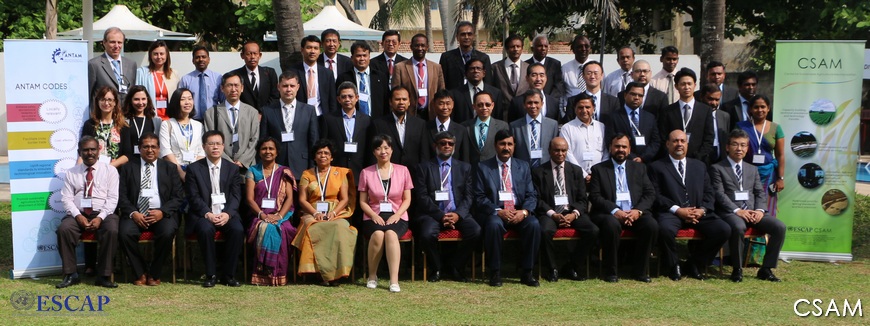Regional meeting of agricultural machinery experts and national policy makers established new standards to promote sustainable agriculture

Experts and national policy makers from 14 member countries met in Negombo, Sri Lanka this week to adopt standards for agricultural machinery in the Asia-Pacific region in order to promote sustainable agriculture and food security and sustainable development.
The third annual meeting of the Asian and Pacific Network for Testing of Agricultural Machinery (ANTAM)—held from 8-10 December 2016—adopted the second version of ANTAM Codes established during previous sessions. Participating countries, worked to identify regional needs to promote standards to support the use of safe, efficient and environmentally sound agricultural machinery throughout Asia and the Pacific.
The lack of testing standards of agricultural machines is hindering the transition from animal labour to machinery based agricultural production in the Asia-Pacific region. Given that a majority of agricultural machinery is produced in a limited number of countries the lack of regionally accepted testing standards makes importation of machines more expensive. ANTAM Codes can reduce costs for end users as well as ensure that agricultural machines meet international safety and environmental standards.
In his welcoming remarks, Dr. Rohan Wijekoon, Director General of Agriculture, Department of Agriculture, Ministry of Agriculture of Sri Lanka emphasized the crucial role played by agricultural machinery in the promotion of chemical-free agricultural practices in Sri Lanka.
Dr. Li Yutong, Head of the Centre for Sustainable Agriculture, highlighted the importance of projects like ANTAM in the attainment of the Sustainable Development Goals. Specifically, in role of the network as a nexus among different stakeholders in the field of agricultural machinery and in the concrete promotion of sustainable agricultural practices.
Sri Lanka was elected as the ANTAM Chair in 2017 and the Philippines were elected as Vice-Chair 2017. The Italian Agency for Testing of Agricultural Machinery (ENAMA) was confirmed as Technical Reference Unit of ANTAM for 2017-2019. Participating countries adopted the work plan of 2017 aimed at paving the way toward the establishment of mutually recognized testing schemes. In 2017 the network will focus on the development of substantive capacity building activities to enable member countries to apply the ANTAM Codes as well as the development of new sets of standards for paddy transplanters.
On the third day, the village of Makandura welcomed ANTAM delegates with a demonstration on the evolution of rice transplanting methods. The demonstration showcased different practices including hand planting, parachute technique, simple hand tools for direct seeding to advanced mechanized transplanters.
The third annual meeting of ANTAM was organised by the Centre for Sustainable Agriculture Mechanism (CSAM) of the United Nations Economic and Social Commission for Asia and the Pacific (ESCAP) in collaboration with the Department of Agriculture, Ministry of Agriculture of Sri Lanka.
